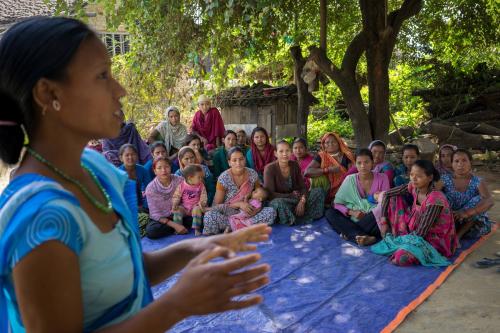

3:00 am EDT - 4:00 am EDT
Past Event
3:00 am - 4:00 am EDT
Sophialaan 10, 2514 JR Den Haag
On June 17, The Hague Institute for Global Justice and the Brookings Institution welcomed former U.S. Secretary of State Madeleine Albright for the inaugural Madeleine K. Albright Global Justice Lecture, held in The Hague. Secretary Albright discussed the many difficult policy issues that lie at the intersection of justice and security: nuclear nonproliferation, terrorism, crimes against humanity, and geopolitical tensions, to name a few. To successfully establish global order, policymakers must consider justice and security in concert with one another: Justice brings principles of fairness, equality, and inclusive governance to security making it more lasting, and bearing in mind security can make justice mechanisms more practical, forward leaning, and capable of forestalling or ending conflict. To achieve this, policymakers must bear in mind the lessons of our collective global history—education on these matters is key. In the question and answer portion of the event, the discussion turned to timing in justice and accountability (is justice delayed justice denied?), women’s empowerment in justice and security (imperative), and youth engagement (vital).
3:00 am - 3:05 am
3:05 am - 3:10 am
3:10 am - 3:30 am
3:30 am - 4:00 am


Amna Qayyum
October 25, 2024

Matias Spektor
April 15, 2024
2024
The Brookings Institution, Washington DC
Friday, 10:00 am - 12:00 pm EDT